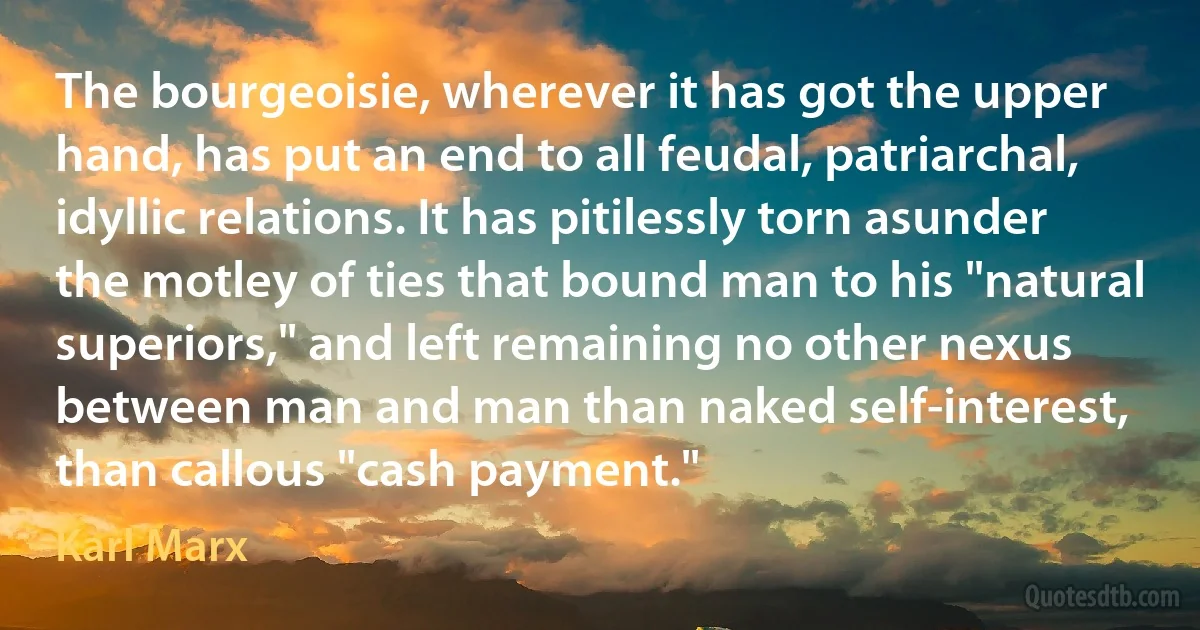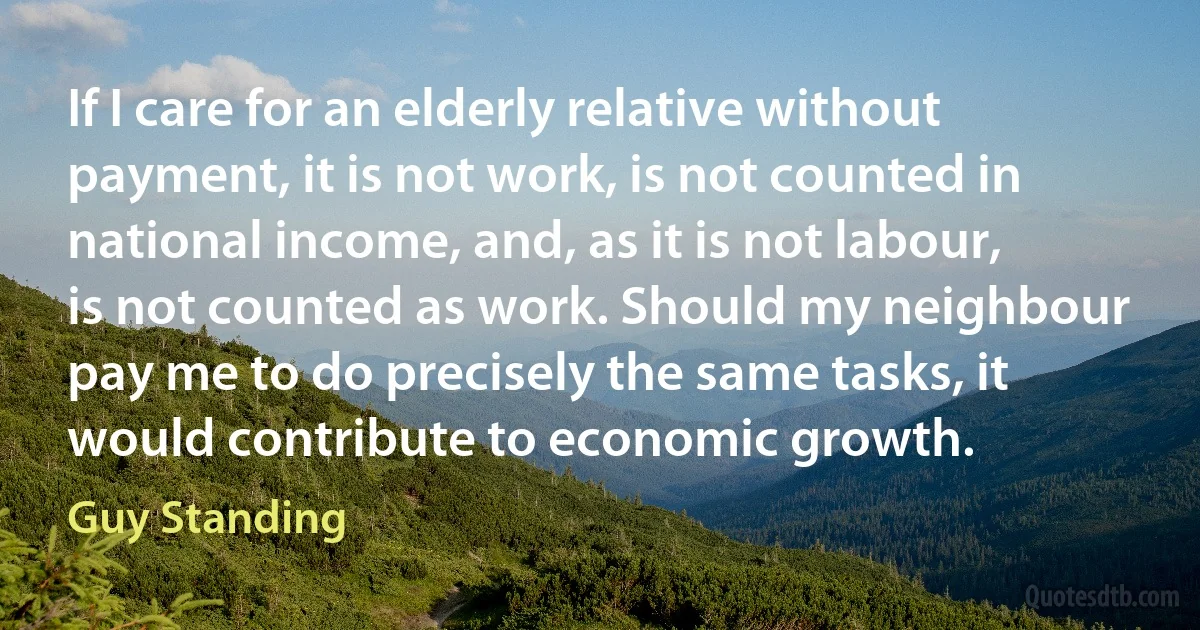Payment Quotes - page 4
Money is only important for what it will procure. Thus a change in the monetary unit, which is uniform in its operation and affects all transactions equally, has no consequences. If, by a change in the established standard of value, a man received and owned twice as much money as he did before in payment for all rights and for all efforts, and if he also paid out twice as much money for all acquisitions and for all satisfactions, he would be wholly unaffected.

John Maynard Keynes
When national debts have once been accumulated to a certain degree, there is scarce, I believe, a single instance of their having been fairly and completely paid. The liberation of the public revenue, if it has ever been brought about at all, has always been brought about by bankruptcy; sometimes by an avowed one, but always by a real one, though frequently by a pretend payment.

Adam Smith
The charge has been made that the United States has shipped weapons to Iran as ransom payment for the release of American hostages in Lebanon, that the United States undercut its allies and secretly violated American policy against trafficking with terrorists.... Those charges are utterly false.... We did not - repeat - did not trade weapons or anything else for hostages, nor will we.

Ronald Reagan
With regard to the abuse of authority, this also may come about in two ways. First, when what is ordered by an authority is opposed to the object for which that authority was constituted (if, for example, some sinful action is commanded or one which is contrary to virtue, when it is precisely for the protection and fostering of virtue that authority is instituted). In such a case, not only is there no obligation to obey the authority, but one is obliged to disobey it, as did the holy martyrs who suffered death rather than obey the impious commands of tyrants. Secondly, when those who bear such authority command things which exceed the competence of such authority; as, for example, when a master demands payment from a servant which the latter is not bound to make, and other similar cases. In this instance the subject is free to obey or disobey.

Thomas Aquinas
Money you know you need or want to spend in the next few years is savings. Money you keep handy for an emergency belongs in savings. Money you hope to use soon for a down payment on a house belongs in savings. And all savings belong in a low-risk bank savings account or money market account.

Suze Orman
Akbar had prohibited enslavement and sale of women and children of peasants who had defaulted in payment of revenue. He knew, as Abul Fazl says, that many evil hearted and vicious men either because of ill-founded suspicion or sheer greed, used to proceed to villages and mahals and sack them.

Abu'l-Fazl ibn Mubarak
...grandees pay for a work of art considerably under its value, and according to their own caprice. ... When an Omrah or Mansabdar requires the services of an artisan, he sends to the bazar for him, employing force, if necessary, to make the poor man work; and after the task is finished, the unfeeling lord pays, not according to the value- of the labour, but agreeably to his own standard of fair remuneration; the artisan having reason to congratulate himself if the Korrah has not been given in part payment.

François Bernier
Barani mourned: "Should the king consider the payment of a few tankas by way of jiziya as sufficient justification for their allowing all possible freedom to the infidels to observe and demonstrate all orders and detail of infidelity, to read the misleading literature of their faith, and to propagate their teachings, how could the true religion get the upper hand over other religions, and how could the emblems of Islam be held high? How will the true faith prevail if rulers allow the infidels to keep their temples, adorn their idols, and to make merry during their festivals with beating of drums and dhols, singing and dancing?”.

Ziauddin Barani
Marginalised bodies do marginalised work. Bodies that are garroted and controlled can be persuaded to do work that is underpaid and overlooked. Slavemaking is a social science, and nowhere is that science more expertly demonstrated than in the continued ability of contemporary industrial culture to persuade women perform the vast majority of vital domestic and caring labour without expecting reward or payment.

Laurie Penny
Muhammad Kasim fixed a tax upon all the subjects, according to the laws of the Prophet. Those who embraced the Muhammadan faith were exempted from slavery, the tribute, and the poll-tax, and from those who did not change their creed a tax was exacted according to three grades. The first grade was of great men, and each of these was to pay silver, equal to forty-eight dirams in weight, the second grade twenty-four dirams, and the lowest grade twelve dirams. It was ordered that all who should become Musulmans at once should be exempted from the payment, but those who were desirous of their old persuasion must pay the tribute and poll-tax. Some showed an inclination to abide by their creed, and some having resolved upon paying tribute, held by the faith of their forefathers, but their lands and property were not taken from them...

Muhammad bin Qasim
All these actions will require sacrifice on the part of every one of us if we are to get over this dangerous period without intolerable risk. The simplest form of this sacrifice would be the payment of more taxes to support a larger defense budget. It is difficult to estimate how much money will be required to close the gap of our inferiority at the maximum possible rate, but I would suggest that we are talking in terms of a budget between $50 and $55 billion a year for the next five years. Once the gap is closed, subsequent budgets will not need be so high. This requirement for a bigger budget will exist regardless of any transitory shift in Soviet attitude and behavior. There is no living with communism as an inferior.

Maxwell D. Taylor


![We have to be grown-ups, I think [when discussing the payment of funds today to prevent climate harm which may be decades in the future]. There are lots of things we do where the investments come way, way in the future. Educating 4-year-olds... that's an investment that goes way into the future as well. (William D. Nordhaus)](https://cdn.quotesdtb.com/img/quotes_images_webp/09/william-d-nordhaus-climate-957609.webp)
